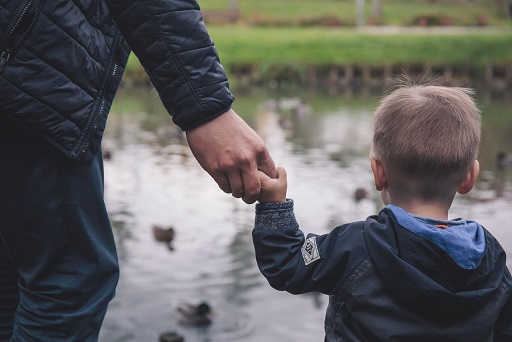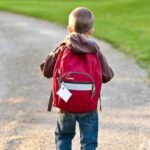
In a German forest kindergarten (Waldkindergarten), there are no walls, no desks, and no colorful posters. Instead, children spend their days in the woods – building shelters from branches, balancing on fallen logs, and learning to navigate mud, bugs, and the occasional scraped knee.
To outsiders, this may look wild or even reckless. But to Germans, it’s one of the most purposeful and effective ways to raise confident, capable kids.
Across Germany, the philosophy of raising children with structured freedom begins early – and it starts with how they play, learn, and grow in nature.
Let’s explore how German parenting values, forest schooling, and child-led exploration all come together to create a unique and quietly powerful approach to childhood.
What Is a Forest Kindergarten (Waldkindergarten)?
A forest kindergarten is an early education model where children spend most or all of their school day outdoors, regardless of the weather.
There are over 2,000 Waldkindergärten across Germany, and they typically serve children between ages 3 and 6, just before they enter primary school.
Activities include:
- Climbing trees
- Building forts
- Collecting leaves, rocks, and insects
- Storytelling around logs
- Singing songs and group games
- Gardening and simple handcrafts
- Exploring seasons, weather, and wildlife
There are no formal classrooms. Only a small heated shelter may be used for extreme conditions. Teachers guide, observe, and protect – but they rarely interrupt play unless necessary.
The core belief? Nature is the classroom.
What German Parents Believe About Childhood
German parenting is often defined by two words:
Structure and freedom.
It’s a balance. Children are given routines, rules, and clear expectations – but within that structure, they’re encouraged to explore independently, fail safely, and develop inner resilience.
In a forest school setting, this means:
- Letting children climb (and fall)
- Not interfering with every conflict
- Trusting children to assess risks
- Encouraging group decision-making
- Letting boredom spark creativity
Children are treated not as fragile beings to be protected from discomfort, but as active participants in their own development.
What Children Learn in Forest School
German forest kindergartens aren’t just about outdoor fun – they’re intentionally designed to support early development in multiple areas.
Here’s what kids learn:
Physical Development
- Better balance, coordination, and strength
- Resilience through exposure to changing weather
- Gross and fine motor skills from climbing, digging, tying, building
Cognitive Skills
- Focus and concentration from unstructured play
- Early science concepts (plants, animals, seasons, cause and effect)
- Basic math through counting, measuring, estimating
Language and Communication
- Rich vocabulary from storytelling and play narration
- Listening and turn-taking in group games
- Verbal negotiation during conflict resolution
Social-Emotional Growth
- Independence through self-directed activities
- Empathy from caring for others and the environment
- Emotional regulation through nature’s calming effect
Forest schools don’t rush academics. Instead, they give children the foundation to thrive in formal learning later on.
How This Reflects German Parenting Culture
Forest kindergartens are not a quirky exception – they mirror broader German parenting values, including:
- Autonomy over protection – Children are given space to try, stumble, and learn
- Natural consequences – Lessons are learned through experience, not lectures
- Non-interference – Parents and teachers step back unless truly needed
- Low praise, high expectation – Achievements are acknowledged calmly, not celebrated excessively
You won’t find participation trophies or endless “good job!” comments in a German forest school. Instead, you’ll see children who are proud of what they’ve done because they did it themselves.
Do Forest Kindergartens Work?
Multiple studies have found that children who attend forest kindergartens often enter primary school with better social skills, longer attention spans, and greater resilience than peers in traditional indoor settings.
A 2007 study by the University of Heidelberg found that Waldkindergarten kids:
- Had stronger immune systems
- Showed less aggression
- Scored higher in motor and concentration tasks
- Were less likely to be diagnosed with ADHD
And while formal literacy isn’t emphasized, forest school students tend to catch up quickly in reading and writing, often with less stress and anxiety.
Do All German Children Attend Forest Kindergarten?
No – but it’s a growing trend.
About 10% of German kindergartens are now forest-based. The rest incorporate elements of outdoor learning, but also include indoor classrooms.
Many parents choose forest kindergartens because:
- Their child thrives outside
- They want fewer screens and more nature
- They believe social-emotional learning is more important than early academics
- They value unstructured play and freedom
Enrollment is competitive in some regions – urban parents often drive long distances to bring their kids to forest schools in nearby woods.
What Forest Kindergarten Looks Like Day-to-Day
A typical day might include:
- 8:00 AM – Children arrive, gather in a circle, and discuss the day’s plan
- 8:30–10:30 – Free play and exploration in a wooded area
- 10:30 – Snack time, often around a campfire or picnic area
- 11:00–12:30 – Group activities, storytelling, or nature-based craft
- 12:30 PM – Hike back to pickup point, closing circle, and goodbye song
Children dress for the weather – rain pants, boots, layered jackets, and hats are standard. Mud is expected. Cold is not feared. And wet socks are simply part of the fun.
What Expats and Tourists Often Notice
To parents from more protective cultures, forest school can be shocking:
- There are no fences in many forest kindergartens
- Children handle real tools like saws and hammers
- Teachers don’t step in when children argue
- Children climb high, run fast, and rarely sit still
But they’re also:
- Calm
- Resilient
- Curious
- Physically strong
- Emotionally aware
- And deeply connected to the world around them
It’s a quiet, powerful kind of confidence – built not in classrooms, but under trees and across muddy trails.
The Freedom to Grow
Germany’s approach to early childhood may seem hands-off, but it’s anything but lazy.
It’s intentional. It’s structured. And it’s deeply rooted in the belief that children, when given the right space and gentle guidance, will rise to meet challenges – sometimes barefoot, often muddy, and always wiser for the journey.
Whether your child attends a forest kindergarten or not, the message is clear:
Let them try.
Let them fall.
Let them grow.
FAQs: Forest Kindergarten and Parenting in Germany
What is a forest kindergarten in Germany?
A forest kindergarten (Waldkindergarten) is an early childhood education model where children spend most of their day outdoors in nature, learning through play and exploration.
What age do children start forest kindergarten?
Children usually attend between ages 3 and 6, before entering primary school (Grundschule).
Are forest kindergartens safe?
Yes. Teachers are trained to manage risk and ensure safety while still allowing children freedom to explore. Children receive outdoor safety training.
Is there academic instruction in forest kindergartens?
No formal academics are taught. Instead, focus is placed on social skills, motor development, creativity, and resilience. Children typically adapt well to academic settings afterward.
Related Reads in the Family, Childhood & Education Series:
- Family Life in Germany: What Makes It So Unique?
- Why German Kids Walk to School Alone: Independence from a Young Age
- The Curious Tradition of Schultüte: Why German Kids Get a Giant Candy Cone
- Birthday Parties in Kindergarten: German Rules Parents Must Follow
- German Toys with a Purpose: Education Through Play
- The German Parenting Style: Strict, Structured, and Surprisingly Relaxed







